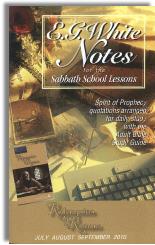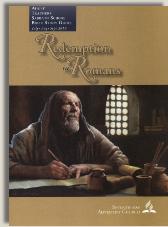|
||||||||||||||
Commentary on "Justified by Faith"
Day 1: Sabbath Afternoon, July 17, 2010 - Introduction
Overview
In this lesson, the author states that the good news is that despite being guilty, a sinner is pardoned. This is purely Adventist theology. The Bible teaches us that we have been acquitted.
Observations
There is a subtle difference between being acquitted and being pardoned. That difference, though minute, has major implications. To be pardoned means that in spite of being guilty, we are released from the penalty. The offense and the conviction remain, but the circumstances surrounding punishment are what change. In an acquittal, an individual is set free because a new verdict is rendered. A verdict that declares the individual not guilty, and the record of their offense is completely expunged.
This lesson exposes the underside of Adventist theology found in the investigative judgment. Adventism cannot completely grasp the Biblical teaching of a sinner’s acquittal or justification because it conflicts with Ellen White’s doctrine of the investigative judgment.
The author also states that “we are justified by God, not because of our works but because of Jesus.” That statement is negated by Ellen White’s own words:
. . . In my dream you were presenting the subject of faith and the imputed righteousness of Christ by faith. You repeated several times that works amounted to nothing, that there were no conditions. . . . I decided to write to you. You state this matter too strongly. There are conditions to our receiving justification and sanctification, and the righteousness of Christ. I know your meaning, but you leave a wrong impression upon many minds. While good works will not save even one soul, yet it is impossible for even one soul to be saved without good works. Selected Messages, Bk. 1, p. 377.
Summary
- Pardon is different from acquittal. Pardon excused the sinner from the penalty, but the verdict of “guilty” and the record of guilt still stand. Acquittal removes the verdict of guilty, and their record is completely removed.
- Although the author of the lesson says our works do not contribute to our justification, Ellen White said there “are conditions to our receiving justification and sanctification, and the righteousness of Christ.”
- The Bible teaches that our righteousness is completely imputed to us. None of our works contributes. The problem with this lesson, however, is that it speaks only one-half of the contradictory message of Ellen White’s insistence that our behavior is part of our salvation.
Copyright 2010 BibleStudiesForAdventists.com. All rights reserved. Revised July 19, 2010. This website is published by Life Assurance Ministries, Glendale, Arizona, USA, the publisher of Proclamation! Magazine. Contact email: BibleStudiesForAdventists@gmail.com.
The Sabbath School Bible Study Guide and the corresponding E.G. White Notes are published by Pacific Press Publishing Association, which is owned and operated by the Seventh-day Adventist church. The current quarter's editions are pictured above.
Official Adventist Resources
Standard Edition Study Guide Week 4
Teacher's Edition Study Guide Week 4
Easy Reading Edition Study Guide Wk 4
Search the Complete Published Ellen G. White Writings


